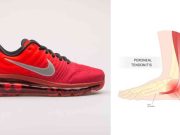Are you a runner looking for the perfect running shoes? You’re in luck! Not only is it essential to find the right shoes for your feet and style of running, but it’s also important to know How long do running shoes last?
Knowing how long your running shoes will last is essential for any runner. Not only does it help you budget for new shoes, but it also helps you ensure that you get the most out of your current ones.
In this blog, we’ll discuss the factors that affect the longevity of running shoes, the recommended mileage for them, how to tell when it’s time to replace them, and tips for getting the most out of them. We’ll also go over different types of running shoes, tips for choosing the right ones, and how to properly care for them. Finally, we’ll provide some common mistakes to avoid when buying new running shoes. With this knowledge, you can ensure that your running shoes last as long as possible.
Table of Contents
Factors That Affect Running Shoe Longevity:
When selecting running shoes, it’s important to consider the factors that can affect their longevity. The type of activity you’re engaging in, your weight, and the surface you’re running on can all have an impact on how long your shoes will last.
For instance, if you’re engaging in high-impact activities like trail running or distance running, you should expect your shoes to wear out faster as they absorb much more shock. Similarly, if you’re overweight, your running shoes will be put under more strain and may need to be replaced more frequently. The type of surface you run on also affects how often you should replace your shoes.
If you’re logging most of your miles on hard pavement, you can expect them to wear out faster than running most of your miles on softer surfaces like grass or dirt. Considering these factors when purchasing running shoes will help ensure that they last as long as possible.
How long do running shoes last?
Most experts agree that the recommended mileage for running shoes is between 300 and 500 miles. This is roughly around four to six months for someone running an average of 20 miles a week. This number can vary depending on several factors, such as the type of running shoe you are using, the surfaces you are running on, and how much you weigh.
It’s important to remember that these estimates are just guidelines and that your shoes may need replacing sooner or later, depending on your situation. When it comes to getting the most out of your running shoes, it’s essential to be aware of these factors and consider them when deciding when to replace them.
How to Tell When Your Running Shoes Need Replacing?
It’s important to keep an eye on your running shoes and look for signs that they may need replacing. The sole is the most apparent sign; if it is wearing down and the tread is becoming smooth, it’s time to start looking for a new pair. Additionally, if your feet, hips, or knees start feeling extra sore after a run, this could be a sign that your shoes have reached their limit.
To ensure the maximum lifespan of your shoes, it’s important to choose the right type for you, ensure you care for them properly, and keep track of the mileage you’ve done in them. With these steps in mind, you can rest assured that you’ll get the most out of your running shoes.
Tips for Getting the Most Out of Your Running Shoes
You can get the most out of your running shoes by taking proper care of them and following the recommended mileage for replacement. To extend your shoes’ life, rotate them with other pairs and give them rest days.
Sweaty foam needs time to dry out, so be sure to alternate with other shoes when running. Additionally, you should avoid running on too hard surfaces, like concrete, as this will cause more wear and tear on the soles. With proper care, you can prolong the life of your running shoes and get the most out of them.
READ MORE: What to do with old running shoes?
How often should you replace running shoes?
Replacing your running shoes is crucial to taking care of your feet and maintaining your running performance. Experts recommend replacing your running shoes every 500 to 750 kilometers, or roughly 300 to 500 miles.
This equates to about four to six months for someone who runs an average of 50 miles per week. It’s important to note that this number may vary depending on your running shoe type and how well you maintain it.
If you are a more serious runner, you may need to replace your shoes sooner than the average person. To ensure that your running shoes last as long as possible, make sure you follow the tips outlined in the previous sections, such as wearing the correct type of shoe for your foot type and gait and adequately caring for your shoes.
Different Types of Running Shoes:
When it comes to running shoes, there are many different types to choose from. Depending on the terrain you run on, the type of arch you have, and your running style, one shoe may work better for you than another.
For instance, trail shoes are designed to provide extra traction and stability if you run on trails or hills. For those who need additional cushioning and support, motion-control shoes are specifically designed for pronation control. If you prefer a lightweight feel and a more responsive ride, you may want to try a racing flat or minimalistic shoe. Ultimately, the type of shoe that works best for you depends on your needs.
Tips for Choosing the Right Running Shoes:
Once you know how long running shoes last, choosing the right pair for your needs is essential: Consider the running you do most often (e.g., trail running, road running, track and field) and find a specific shoe for that type of activity. Runners should look for shoes that provide adequate cushioning, arch support, and breathability to ensure comfort and performance. Consider the shoe’s fit as well; make sure that the shoe fits snugly but not too tight on your feet. Try on multiple pairs of shoes before purchasing to ensure you get the best one that offers maximum comfort.
How to Properly Care for Your Running Shoes:
Proper care for your running shoes can ensure you get the most mileage out of them. To maintain the quality of your shoes for as long as possible and to keep them fresh, we recommend proper care and storage.
You should avoid washing your shoes with a washing machine, as it can damage the materials and shorten their lifespan. Instead, use mild soap and water to clean dirt and debris off your shoes. Additionally, when not in use, store your running shoes in their original box in a dry place to keep them in good condition. Finally, remember to check the soles of your shoes for wear periodically so that you can replace them when necessary. With the proper care, you can get the most out of your running shoes and stay ahead of the game.
READ MORE: Best walking shoes for overweight women
Common Mistakes to Avoid When Purchasing Running Shoes:
When purchasing running shoes, it is crucial to avoid common mistakes that can lead to decreased longevity and poor performance. First, make sure you get the right size for your feet. Your regular shoe size will not be the same as your running shoe size, and different brands will have different sizes.
It is also essential to take the time to try on the shoes and run around in them before making a purchase – most shoes will feel comfortable while standing or walking around a shoe store, but the real test comes after you’ve run a few miles in them. Finally, keep track of when your running shoes were purchased – this will help you know when it is time to replace them and get the most out of them.
Conclusion
In conclusion, it is important to be aware of the factors that affect a running shoe’s life and to replace them when necessary. By choosing the right running shoe for your particular needs, taking proper care of them, and replacing them regularly, you can ensure that you get the most out of your running shoes.
While the recommended mileage for running shoes is 300 to 500 miles, it is important to understand that this number can vary depending on your running and other factors such as your body weight and running surface. Therefore, it is essential to keep track of how many miles you put on your shoes and replace them when needed to get the most out of your running experience.
































